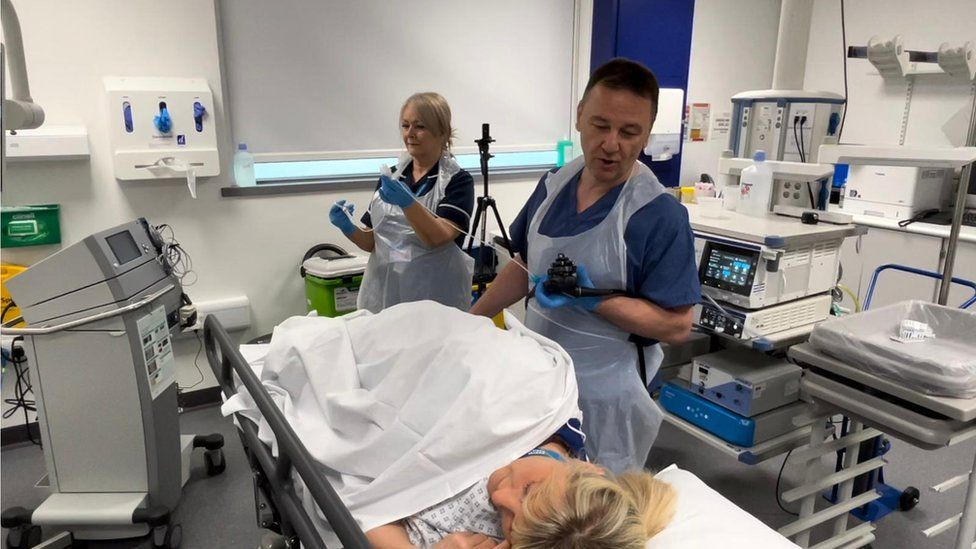ARTICLE AD BOX

The Colo-Detect study uses AI to flag up areas of concern during colonoscopies
A woman who was part of a study using artificial intelligence (AI) to detect bowel cancer is free of the disease after it was found and removed.
Jean Tyler, 75, from South Shields, took part in a study called Colo-Detect as part of a trial at 10 NHS Trusts.
In the trial the AI flags up tissue potentially of concern to the medic carrying out the colonoscopy, which could be missed by the human eye.
About 2,000 patients from 10 NHS trusts have been recruited for the trial.
Jean Tyler - pictured with husband Derek - had surgery and has since recovered
The AI detected a number of polyps and an area of cancer on Mrs Tyler's colonoscopy about a year ago after she agreed to be part of the trial.
She then underwent surgery at South Tyneside District Hospital and has since recovered.
'Well looked after'
"I had fantastic support, it was unbelievable," she said.
"I had about seven or eight visits last year and I was so well looked after.
"I always say yes to these research projects because I know that they can make things a lot better for everybody."
Gastroenterology consultant Professor Colin Rees, based at Newcastle University, led the study alongside a team of colleagues working in South Tyneside and Sunderland NHS Trust.
The trial also includes North Tees and Hartlepool NHS Foundation Trust, South Tees NHS Foundation Trust, Northumbria NHS Foundation Trust and Newcastle Upon Tyne Hospitals NHS Foundation Trust.
Professor Colin Rees led the study alongside a team of colleagues working in South Tyneside and Sunderland NHS Trust
Professor Rees described it as "world-leading" in improving detection, adding AI was likely to become "a major tool used by medicine in the coming years".
The findings will studied to see how it can help save lives from bowel cancer - the second biggest killer cancer, claiming around 16,800 lives a year in the UK.
The results are expected to be published in the autumn.
Follow BBC North East & Cumbria on Twitter, Facebook and Instagram. Send your story ideas to northeastandcumbria@bbc.co.uk.
Related Internet Links
The BBC is not responsible for the content of external sites.

 2 years ago
56
2 years ago
56








 English (US) ·
English (US) ·